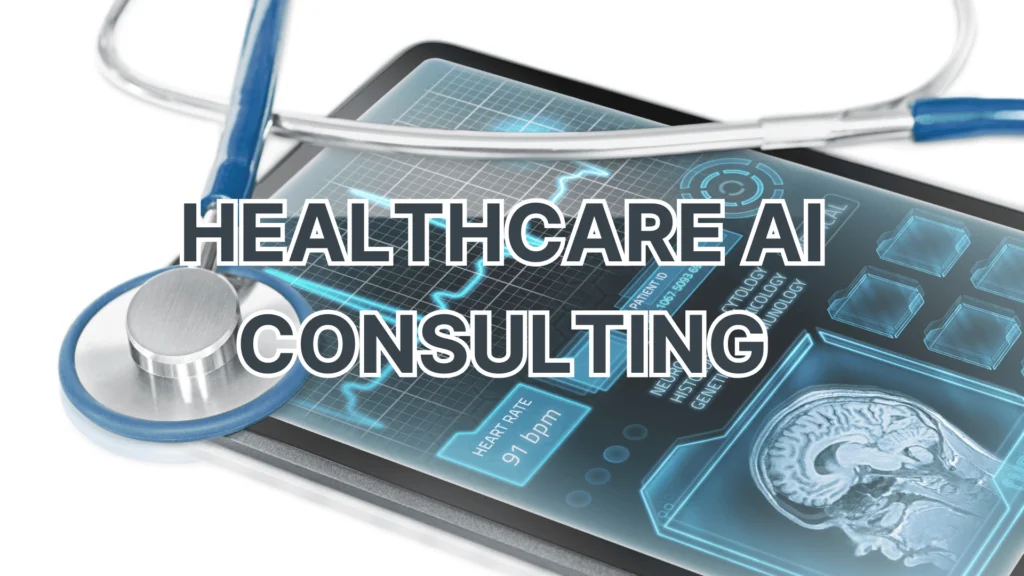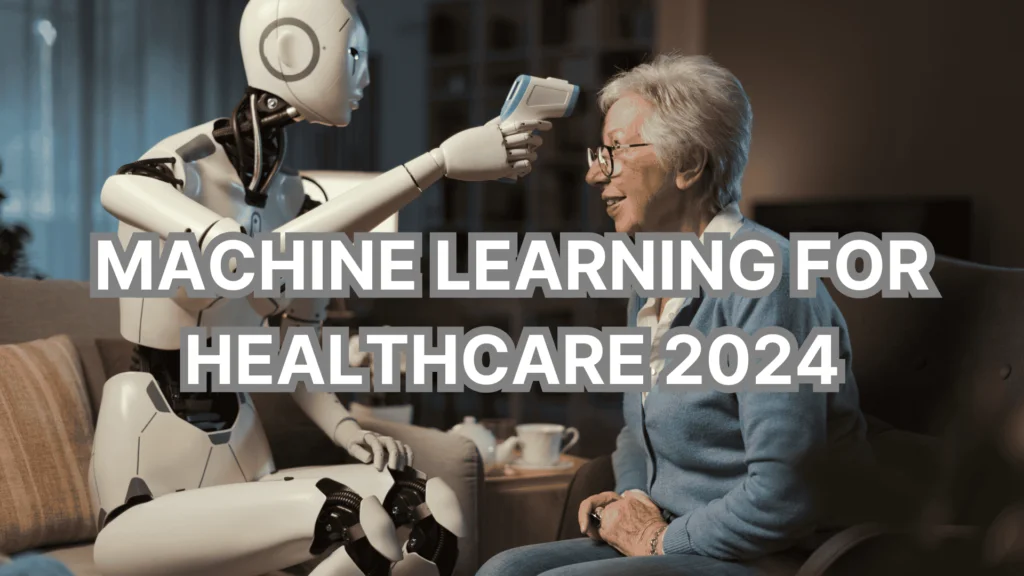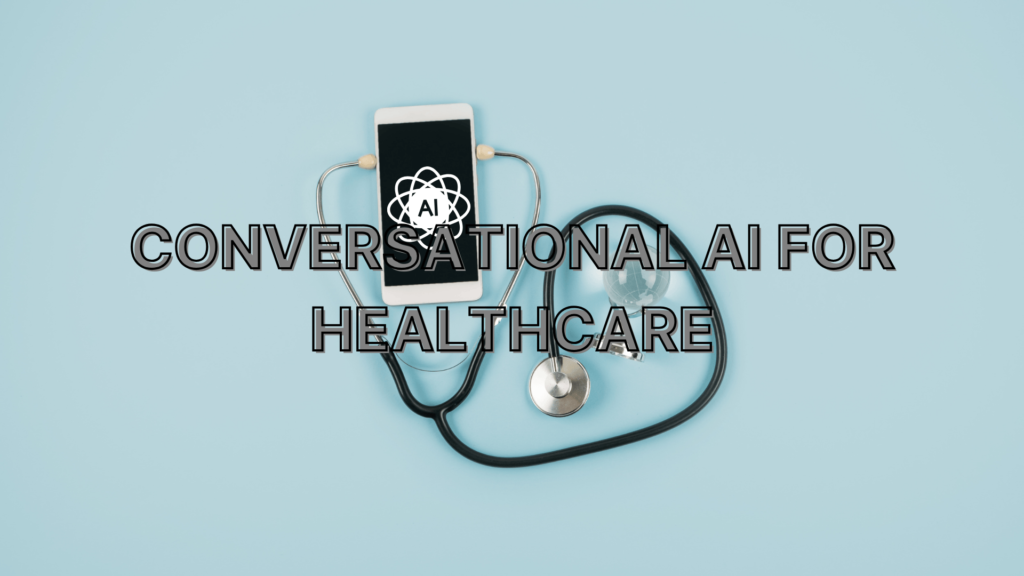Healthcare AI Consulting: Revolutionizing Diagnostics
What is Healthcare AI All About?
AI is not just a theoretical science fiction anymore; it is real particularly so in the medical sector. In most service sectors ranging from the efficiency of work procedures to an advanced diagnostic approach, AI is quickly impacting the healthcare industry. Of these many aspects of digital transformation, perhaps the most core component has been healthcare AI consulting, helping organizations to understand and get up to speed with the kind of solutions that are revolutionizing diagnostics, claims processing, and even patient engagement.

Widening the discussion, in this blog, we will consider specific AI applications in the healthcare sector and the overall economic impact of AI in healthcare implications. Moreover, we’ll look into how effective machine learning for healthcare has become in 2024 and how it is influencing new standards of work.
Want to see where else AI is thriving and revolutionizing things? Check this out!
Diagnostics: Where AI Is Seen at Its Best
The greatest benefit of AI has been seen in diagnostics. For example, medical imaging is one of the fields that has received significant development based on the use of AI in analyzing large datasets. Deep learning algorithms have garnered enough data to such an extent that AI can diagnose diseases at an earlier stage and sometimes even more efficiently than clinicians.
For instance, let’s talk about conversational AI for healthcare. This form of AI takes health history and sometimes symptoms from patients and returns recommendations or preliminary diagnoses. It appraises patients before consulting a doctor, a thing that resembles having a virtual assistant. The time that may be spent here is freed so that healthcare professionals can spend time on more complicated cases.
And it does not end there. Use cases of generative AI in healthcare consist of generating new treatment plans based on past health records of a patient. It also helps in enhancing the rate of diagnosing ailments and makes certain that the patients get the right treatment.
The Best Current AI Solutions for the Healthcare System
With the advancements of AI in the health sector, there are various AI-based solutions to solve specific issues within diagnostic, patient, and operational care. These have the potential to reduce costs, increase engagement, and improve diagnostic performance as driven by AI solutions. Here’s a look at some of the most popular AI healthcare tools available online:
1. IBM Watson Health
Watson Health of the International Business Machines Corporation provides data and analytics to help in diagnoses and treatments, patient care and successful trials. Watson Health has been accredited for its sophisticated machine learning as well as NLP that assists in sorting out large volumes of medical data to facilitate evidenced based decision making.
2. Google DeepMind
DeepMind is modern artificial intelligence for powerful assistance in medical studies and patient examination. It is a technology based on deep learning to identify diseases by studying images while planning for treatment. It has been most useful in areas such as radiology and ophthalmology.
3. PathAI
PathAI is one of the best AI tools in pathology for diagnosing diseases, especially for cancer. With PathAI, tissues samples are analyzed so that pathologists can make precise diagnoses much faster which may enhance patient’s survival rates.
4. Aidoc
Aidoc is an AI radiology assistant designed to help radiologists in analyzing medical images for possible problems and directing attention to cases that require immediate attention. It helps in the early diagnosis of diseases like brain bleed, strokes, and Pulmonary embolism giving life-saving information much earlier.
5. Nuance DAX (Dragon Ambient eXperience)
Nuance DAX is a conversational AI based tool for healthcare professionals to transcribe real-time patient-physician interactions in order to alleviate documentation burden. It improves the satisfaction of the patient and also relieves the health practitioners of numerous administrative burdens.
6. Zebra Medical Vision
Zebra Medical Vision focuses on imaging diagnostics – the application of AI to interpret imaging studies like X-ray, CT, etc. Using the designed tool, one can identify virtually any condition related to liver disease, cardiovascular health, and bone health among others making the diagnoses more efficient.
7. Tempus
Tempus is a cognitive technology company primarily in the business of compassionate cancer care. It incorporates and interprets the clinical and molecular information to deliver personalized medication plans for patient-specific care and be able to support precision oncology.
These AI tools are only few of many possible solutions used in health care by artificial intelligence. These are postulated to enhance their access as the technology develops and progress, therefore revolutionize patient care and functional outlook across varied healthcare organizations.
AI in Healthcare Claims Processing: Reducing Bureaucracy
The interpretation of AI in healthcare claims processing data can be time-consuming and prone to errors. AI is changing that by automating those steps and doing them faster and with fewer errors. This includes claims processing for healthcare where NLP is engaged in analyzing the claims and identification of any suspicious activity.
Healthcare providers as well as insurers are benefiting from the concept. Information that formerly took weeks to collect can now be obtained within days, thus greatly cutting the paperwork burden. It yields impressive economic returns since faster processing results in efficiency in terms of costs and resources.
AI in Healthcare Administration: Streamlining Operations
Moreover, AI is making the change across the numerous sectors of healthcare not only in diagnostics or claims processing. These ancillary tasks, including setting up appointments, charging, and organizing information regarding patients strain healthcare facilities. These tasks are then eased through the use of AI and thus save the human resources for other important tasks.
For instance, healthcare conversational AI in the form of healthcare chatbots helps patients with basic inquiries to decrease the workload on human personnel. They make it possible for clinics and hospitals to run more efficiently so that the patients are happier and have shorter waiting times. This is only the start – AI in healthcare administration will remain the primary driver of improvement in operational inefficiencies.
Machine Learning for Healthcare 2024: What’s New?
As for the future, machine learning for healthcare 2024 brings even more discoveries. From analytically driven analytics to cosmic medical surgeries, machine learning is becoming much more refined. This is because, through the patterns in the data of the patients, AI is able to determine probable disease epidemics, possible complications, and preventive measures to be taken.

Perhaps, one of the most promising directions is the estimation of the patients’ prognosis with the help of AI methods. This is because the variables such as the genetic and lifestyle of a patient and their medical history when fed to the AI models provide a prognosis that assists the physicians. Therefore, the care of the patient will not only be more accurate but also have a strategic anticipation.
The Economic Impact of AI in Healthcare Consulting: A Game Changer
AI’s versatility and impact on healthcare has made important economic benefits unarguable. According to research, the economic impact of AI in healthcare has proved useful in healthcare by reducing repetitive work and offering accurate diagnosis and hence has saved billions of money. Such cost savings are realized not only in terms of efficiency but also in terms of reduced diagnosis and administrative errors.
Think of the effects of the decrease in the claims for malpractice. Since AI in diagnostic tools helps in the detection of accurate analysis it reduces the chances of human error. This, of course, reduces the rates of malpractice insurance and legal expenses, which is advantageous to healthcare practitioners and clients.
In an economic way that is as direct, AI is also generating jobs. Healthcare AI consulting firms are currently trending because many organizations are interested in AI technologies. These consultants assist traditional healthcare organization bureaus to adopt AI implementations, educate individuals, and guarantee that AI is functioning at its best.
Generative AI in Healthcare Use Cases: A Future Full of Possibilities
The application of generative AI in healthcare use cases is another area of good potential. A possible use case can be in therapeutic discovery. AI can predict thousands of chemical compounds and find out which of them might produce the best drug candidates thereby reducing on time and expenses required for pharmaceutical research.
One of the most prominent use cases of AI is in the area of learning personalized medicine. When it comes to the effectiveness of therapies, generative AI is capable of utilizing a patient’s genetic data to recommend efficient, patient-specific treatment plans.
In addition, through AI synthetic medical data can be produced and utilized for training purposes. These can enable doctors to sharpen their diagnostic abilities without compromising the honor and integrity of a patient.
Conversational AI for Healthcare: Connecting Patients and Providers
Conversational AI for healthcare as in chatbots are vital for improving patient communication. By using artificial intelligence in the use of chatbots and virtual assistants, patients can be able to attend consultations with healthcare providers from the comfort of their homes. Not only do these AI tools provide answers but also help in fixing appointments and prompting medication timings.

This form of AI also assists in closing the patient-provider communication gap by offering a communication window at all times. People can seek answers to general health questions from doctors outside of office hours. This restructuring of patient information and coordination enhances the patient’s experience by keeping them updated and involved in the process.
Conclusion: The Future of Healthcare is AI-Driven
Leveraging AI in diagnostics, AI is transforming the healthcare industry in aspects that were unheard of 10 years ago. With the advancement in AI, the utility to the patient and the healthcare provider will increase with time.
So for organizations that seek to leverage AI, healthcare AI consulting should be the way to go. When properly and effectively navigated, the advancement of AI offers benefits that are revolutionary in the delivery of health care strategies, lowering of cost, and boosting of efficiencies within the health care setting.
Therefore, the exploitation of machine learning in healthcare AI consulting will expand even further, as the year 2024 and subsequent years demonstrate. AI is quickly becoming the central focus of healthcare, through conversational, claims processing, and personalized medicine – the opportunities are endless.
From this discussion, we can now conclude that it is high time for healthcare providers to tap into AI. The change is already on its way, are you ready to be a part of the revolution?